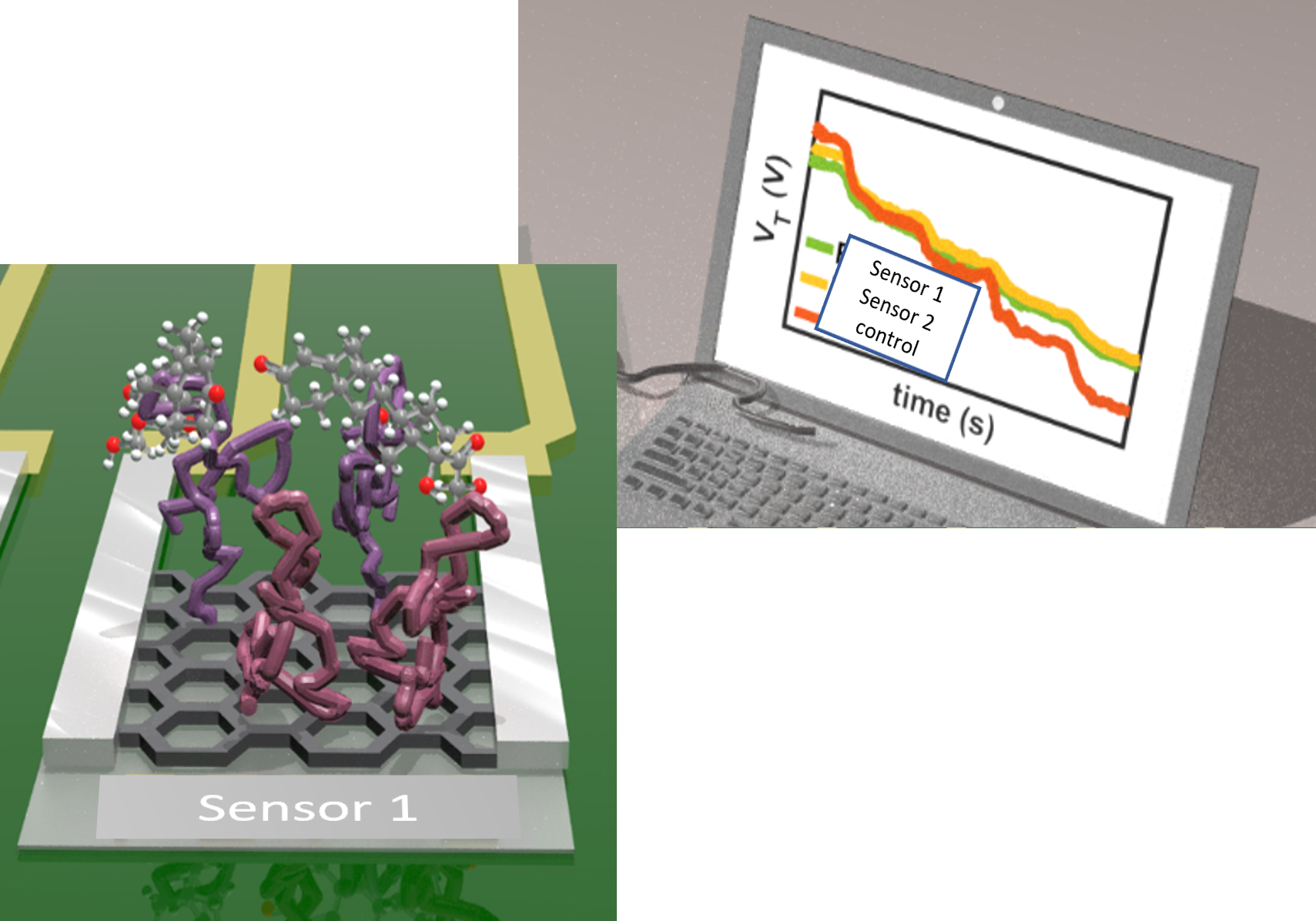
Real-time monitoring of reproductive hormones is essential for advancing personalized healthcare and fertility diagnostics. Estradiol, a key hormone in reproductive health, requires sensitive and selective detection under physiological conditions. Conventional assays are accurate but invasive, slow, and unsuitable for continuous monitoring or wearable applications.
This thesis will focus on the development and optimization of MXene-based wearable biosensors for estradiol detection. MXenes, a class of two-dimensional transition metal carbides and nitrides, offer exceptional electrical conductivity, high surface area, and tunable surface chemistry, making them ideal for high-performance, flexible biosensing devices.
The project will integrate aptamer-functionalization and µ-contact printing as a fabrication method for depositing MXenes on flexible substrates - paving the way for wearable and durable biosensors suitable for real-time hormone monitoring.
Key tasks:
Patterning of MXenes with µ-contact printing (or comparable) onto electrodes to create sensor
Surface functionalization of MXene-based sensors with estradiol-specific aptamers
Electrical and biochemical characterization of sensor performance (sensitivity, selectivity, response time)
Student background:
Interest in biosensing, flexible electronics, and nanomaterials
Background in material science, bioelectronics, electrical engineering, or related fields
Experience with sensor characterization or printing techniques is a plus but not required
Benefits for the student:
Hands-on experience with MXenes, aptamer-based biosensing, and flexible device fabrication
Participation in interdisciplinary research bridging nanotechnology, bioelectronics, and wearable devices
Starting date: ASAP
Reference: https://www.nature.com/articles/s41565-023-01513-0

Real-time monitoring of reproductive hormones is essential for advancing personalized healthcare and fertility diagnostics. Estradiol, a key hormone in reproductive health, requires sensitive and selective detection under physiological conditions. Conventional assays are accurate but invasive, slow, and unsuitable for continuous monitoring or wearable applications.
This thesis will focus on the development and optimization of MXene-based wearable biosensors for estradiol detection. MXenes, a class of two-dimensional transition metal carbides and nitrides, offer exceptional electrical conductivity, high surface area, and tunable surface chemistry, making them ideal for high-performance, flexible biosensing devices.
The project will integrate aptamer-functionalization and µ-contact printing as a fabrication method for depositing MXenes on flexible substrates - paving the way for wearable and durable biosensors suitable for real-time hormone monitoring.
Key tasks:
Patterning of MXenes with µ-contact printing (or comparable) onto electrodes to create sensor
Surface functionalization of MXene-based sensors with estradiol-specific aptamers
Electrical and biochemical characterization of sensor performance (sensitivity, selectivity, response time)
Student background:
Interest in biosensing, flexible electronics, and nanomaterials
Background in material science, bioelectronics, electrical engineering, or related fields
Experience with sensor characterization or printing techniques is a plus but not required
Benefits for the student:
Hands-on experience with MXenes, aptamer-based biosensing, and flexible device fabrication
Participation in interdisciplinary research bridging nanotechnology, bioelectronics, and wearable devices
Starting date: ASAP
Reference: https://www.nature.com/articles/s41565-023-01513-0